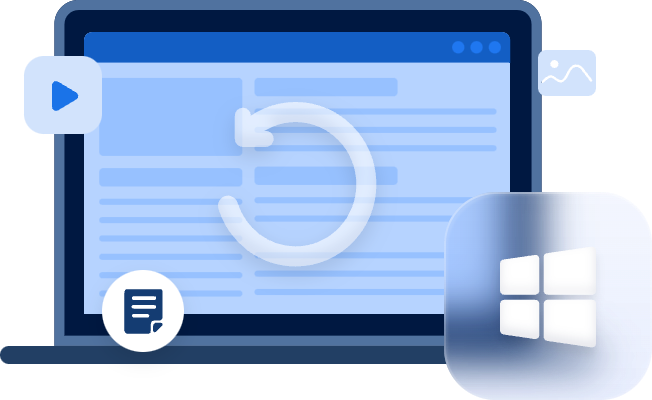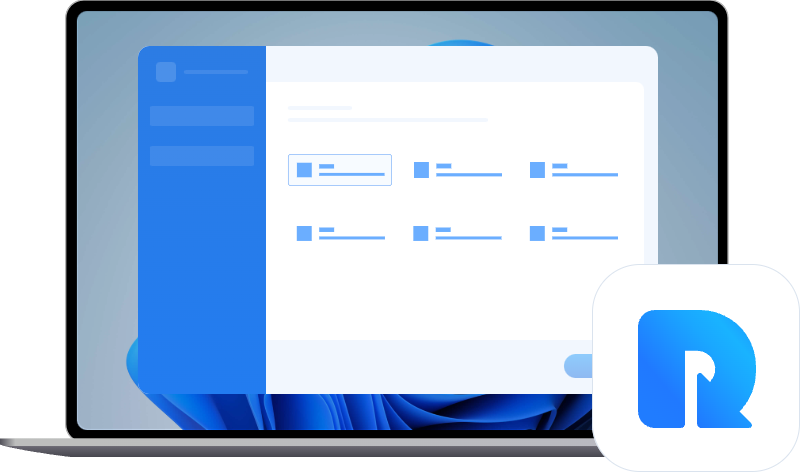The Ultimate Guide to Fixing Unknown USB Device Issues
This in-depth article demystifies the process of resolving the common but frustrating "unknown USB device issue." From straightforward troubleshooting steps to utilizing advanced recovery tools like MyRecover, this guide provides readers with multiple solutions to bring their USB devices back to life.
Ever found yourself plugging in a USB device only to be met with a message that leaves you scratching your head — something along the lines of "Device not recognized"? If you've encountered the vexing "unknown USB device issue," you know the frustration it can bring.
But here's some good news: you're not alone, and more importantly, solutions are at hand. This article is your comprehensive roadmap to not only understanding this issue but also resolving it with ease. So, let's dive in and get those USB devices up and running again, shall we?
How to Fix Unknown USB Device Issue
The "unknown USB device issue" can pop up due to various reasons — outdated drivers, corrupted USB ports, power management settings, or even a faulty USB device. Identifying the root cause is the first step towards a solution. But don't worry, it's not as daunting as it sounds. With a systematic approach, we can tackle each potential cause one by one.
1. Update Your USB Device Drivers
Keeping your drivers up to date is like giving your devices a health check — it's essential. Outdated or corrupt drivers are often the culprits behind the "unknown USB device issue." Here's how to update them:
- Navigate to Device Manager in your Windows search bar.
- Locate and expand the "Universal Serial Bus controllers" section.
- Right-click on each USB driver and select "Update driver."
- Choose "Search automatically for updated driver software" and let Windows do its thing.
2. Change Power Management Settings
Your computer's power settings could be inadvertently putting your USB ports to sleep. To adjust these settings:
- Return to the "Universal Serial Bus controllers" section in Device Manager.
- Right-click on USB Root Hub, go to "Properties," then "Power Management."
- Uncheck "Allow the computer to turn off this device to save power."
- Apply the changes and repeat for each USB Root Hub listed.
3. Disable Fast Startup
Another potential fix involves disabling the Fast Startup feature in Windows, which has been known to cause USB connectivity issues. To do this:
- Open Control Panel and select Power Options.
- Click on "Choose what the power buttons do."
- Click on "Change settings that are currently unavailable."
- Under Shutdown settings, uncheck "Turn on fast startup (recommended)."
- Click Save Changes and restart your computer.
4. Use the Hardware and Devices Troubleshooter
Windows has built-in troubleshooters for various issues, including USB connection problems. To run the Hardware and Devices troubleshooter:
- Type "troubleshoot" in the Windows search bar and select "Troubleshoot settings."
- Scroll down and click on "Hardware and Devices," then click "Run the troubleshooter."
- Follow the on-screen instructions to let Windows detect and fix any issues.
5. Try a Different USB Port or Cable
Sometimes, the simplest solutions are the most effective. If you're still wondering how to fix unknown USB device port reset failed, consider trying a different USB port or cable. It's possible the issue is with the port or cable itself rather than your device or computer.
6. About MyRecover
MyRecover is a robust tool designed to fix various USB device issues, including the dreaded "unknown USB device issue." It stands out with its user-friendly interface and a powerful recovery algorithm. Here's a quick guide on using MyRecover:
- Download and install MyRecover from its official website.
- Connect your problematic USB device to your computer.
- Open MyRecover and select the device from the list.
- Click on the "Start Recovery" button and follow the prompts to fix the issue.
Conclusion
The "unknown USB device issue" might seem like a major roadblock, but as we've seen, it's one that can be overcome with the right approach. Whether it's through updating drivers, tweaking power settings, or leveraging tools like MyRecover, there's always a way to breathe life back into your USB devices. So next time you encounter this issue, remember: you've got the knowledge and tools to fix it.
FAQs
Why does my computer keep saying "unknown USB device"?
This typically happens when there's a problem with the device's drivers, the USB port, or the device itself is malfunctioning.
Can a virus cause the "unknown USB device issue"?
While it's less common, malware or viruses can indeed cause issues with device recognition. It's always a good idea to keep your antivirus software updated and run regular scans.
Is it necessary to update USB drivers even if there's no issue?
Yes, keeping drivers updated can prevent potential issues and ensure your devices function optimally.
What should I do if MyRecover doesn't fix my USB issue?
If MyRecover or other troubleshooting steps don't resolve the issue, it might be a hardware problem. Consider consulting a professional or the device manufacturer.
Can I prevent the "unknown USB device issue" from happening in the future?
While you can't prevent every potential USB issue, regularly updating your drivers, maintaining your computer's health, and using devices carefully can minimize the risk.


